Welcome on an amazing journey into Egyptian Easter traditions, where ancient customs and modern celebrations come together seamlessly. Explore Coptic Easter traditions which have been treasured for generations. These vibrant reflections of Egypt’s cultural history combine centuries-old customs with contemporary festivities for an Easter celebration that brings families and communities together joyfully observant of religious and cultural practices. Let’s venture deeper into their intriguing world by uncovering each ritual or practice’s significance!
The Significance of Egyptian Easter Traditions
Egyptian Easter traditions hold deep cultural and religious meaning, reflecting both its rich heritage and strong sense of community. More than simply rituals, Egyptian Easter traditions represent an opportunity for Egyptians to connect with their past, deepen family ties, express faith and express values and beliefs important to Egyptian society – making Easter one of the most meaningful holidays on the calendar each year. Their blend of ancient customs with contemporary practices highlight resilience and continuity within Egyptian culture through time.
Easter Egyptian History
Ancient History of Egyptian Easter traditions have evolved throughout history. Blending elements of Coptic and Orthodox Easter practices together into one special celebration that honors both Christian heritage and ancient customs and beliefs. Through understanding its rich cultural context and tradition-laden celebrations we gain greater appreciation of how meaningful Easter ceremony where valued in Ancient Egypt and have become today more lovable and precious.
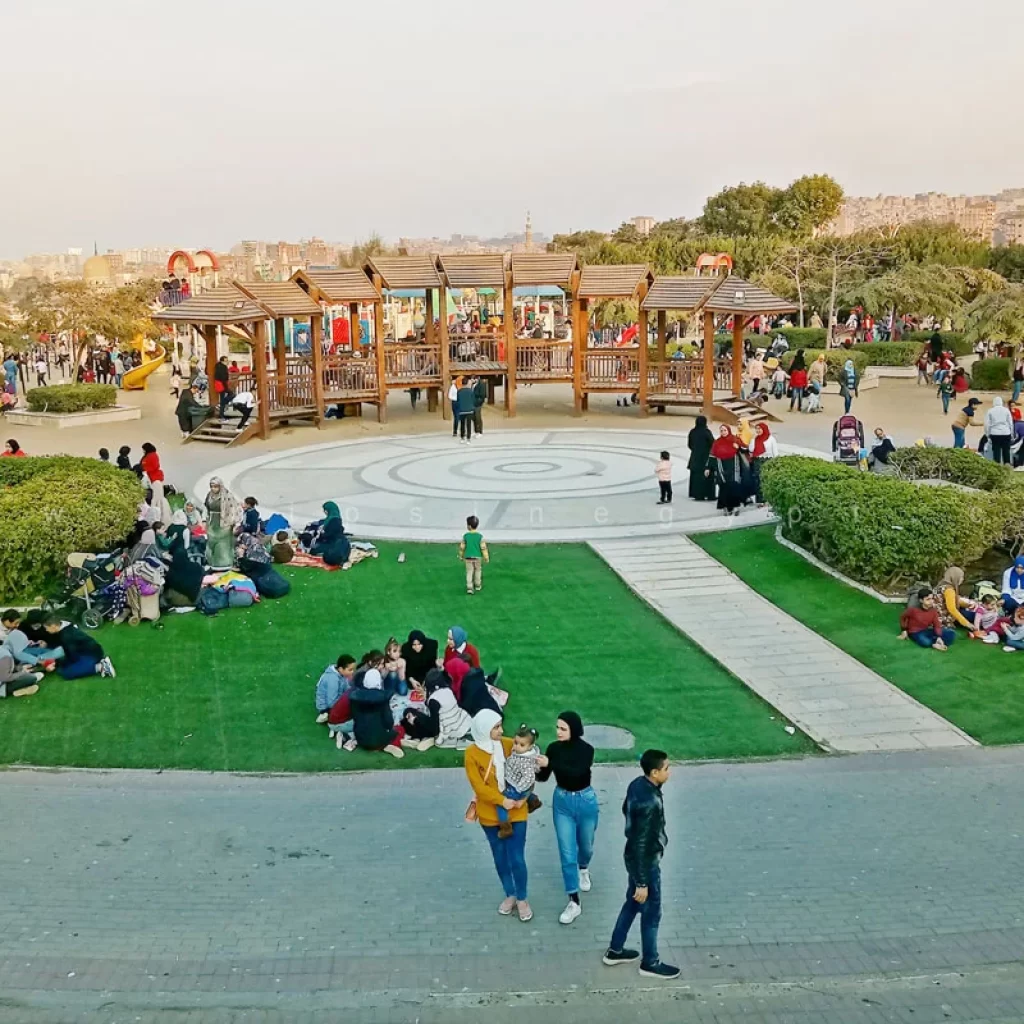
What Are Some Easter Traditions in Egypt?
Easter traditions in Egypt have long been observed as an expression of faith and unity. Families come together to observe special customs passed down from generation to generation – such as dyeing eggs with colors and vivid hues to symbolize new life or sharing traditional dishes such as “fesikh” or “koussa mehshi”, symbolizing abundance and prosperity respectively. All these customs help create continuity as they foster shared identities among Egyptians of different backgrounds.
Easter Traditions in Egypt
Egyptians participate in numerous rituals and activities during Easter season to commemorate Jesus Christ’s resurrection, such as lighting candles in churches to symbolize triumph of light over darkness. Or singing hymns and praying to create a sense of reverence and devotion. Easter serves as an occasion for spiritual renewal and reflection, when individuals come together in celebration of shared beliefs and values.
What Are Some Traditions in Egypt?
One of the cherished Egyptian Easter traditions is gathering family and friends for celebratory meal and gatherings. Which creats a sense of togetherness and community at its center. Sharing “Fattah” and “Maamoul” at Easter meals symbolizes hospitality and generosity – embodying both unity and kinship – as part of this special holiday in Egyptians coptic tradition. Easter also marks acts of charity and goodwill between neighbors as well as strangers – an experience all Egyptians will relish this year!
Egyptian Easter Traditions Food
One of the highlights of Easter holidays in Egypt is their annual feast that showcases an assortment of delicious dishes. From savory meats to sweet pastries and everything in between. Food such as “kunafa” and “hawawshi” is prepared with care, highlighting Egyptians cuisine’s vibrant flavors. And textures while simultaneously conjuring memories from past festivals and family reunions. Sharing meal during Easter symbolizes abundance and generosity – inviting loved ones together in sharing this joyful occasion and creating memories together.
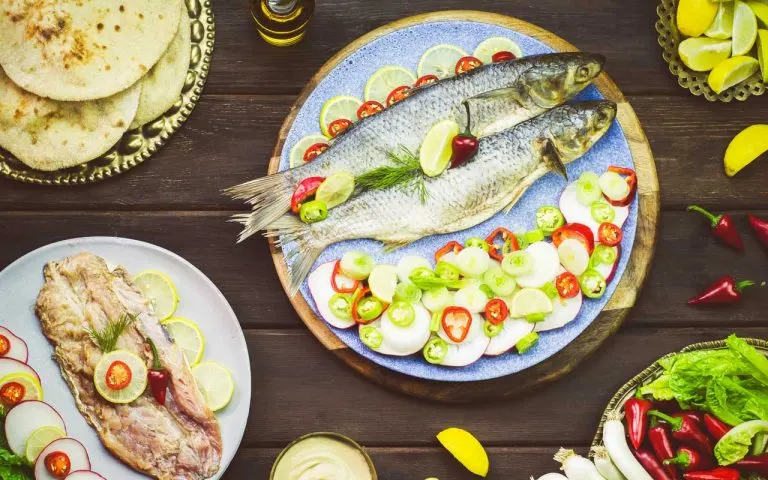
Orthodox Easter and Coptic Easter 2024
2024 marks special times of spiritual renewal and reflection for Egypt’s Coptic Christian community, known as Pascha. Coptic Easter also known as “Pascha,” involves fasting, prayer and devotion culminating in celebrations for Christ’s Resurrection Day. Coptic Egyptian Easter traditions and customs reflect its importance within Egyptians Church history as it unifies and strengthens this community of Christians across Egypt. As Egyptians prepare to commemorate Coptic Easter this year in churches and homes across Egypt alike.
What Rituals Are Performed During Easter?
Egyptians Easter Traditions are to celebrate easter through various rituals, such as attending church services and decorating eggs.
Continue the tradition by attending church service during Easter and sharing traditional food with loved ones. These rituals symbolize rebirth, renewal, and the triumph of light over darkness. Attending church service on Easter is a sacred tradition which unites communities in worship and reflection, exchanging decorated eggs known as “eggs of joy,” to symbolize new hope – these colorful eggs often presented to friends and family as tokens of affection and goodwill. Easter foods in Egypt become times for feasting and fellowship where delicious like “fesekh” and “colored eggs” become culinary treats enjoyed together as family and friends create an abundance and sense of togetherness that fosters abundance within.
Why does Egypt celebrate Easter?
Egypt celebrates Easter as a religious holiday primarily due to its significant Christian population, with the majority being members of the Coptic Orthodox Church. Easter is a central and highly revered event in Christianity worldwide, commemorating the resurrection of Jesus Christ from the dead, as described in the New Testament of the Bible.
In Egypt, the Coptic Orthodox Church follows the Julian calendar for calculating the date of Easter, which often differs from the Western Christian tradition that follows the Gregorian calendar. The date of Easter varies each year but generally falls between late March and late April.
For the Coptic Orthodox Christians in Egypt, Easter holds immense religious and cultural significance. It is a weekend to commemorate the crucifixion, death, and resurrection of Jesus Christ, and it marks the climax of the Holy Week, which includes various liturgical services, prayers, fasting, and spiritual contemplation. The Easter celebration as Egyptian Easter Traditions represents the triumph of life over death, and salvation for believers.
In addition to its religious importance, Egypt’s Easter is also a holiday for families to come together, share meals, exchange greetings, and participate in various tradition and customs. It is an occasion for joy, renewal, and unity within the Christian community and highlights the cultural richness and heritage of Egypt.
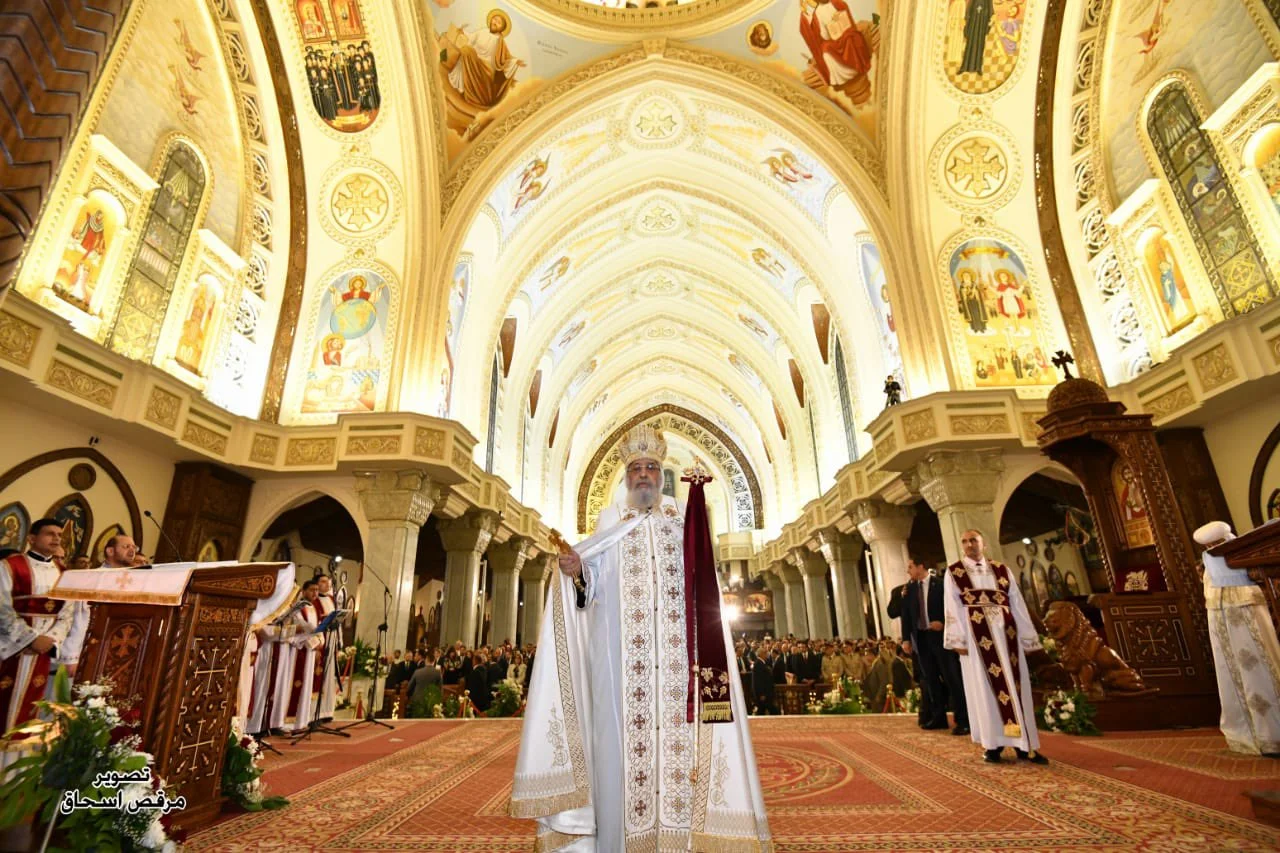
What Was the Ancient Egyptian Easter Holiday?
Ancient Egyptians would celebrate spring’s arrival with festivals honoring Isis and Osiris’ resurrection, setting the precedent for Coptic Easter holiday in Egypt “Sham El Nessim”. One such ancient festival, “Sham El-Nessim,” marked the start of spring with feasting, dancing, revelry and partying. also, celebrating after winter months through picnics, games, socializing with family and friends in outdoor spaces and the renewal spirit embodied by this ancient Egyptians Easter holiday which continues today in today’s festivals in Egypt.
What Is Egyptian Easter Called?
Egyptian Easter is celebrated yearly as Sham El-Nessim, a spring festival that comes in April. Which blends Christian and ancient Egyptians customs. This special blend embodies Egypt’s rich multicultural history and enduring customs, reflecting their longstanding Coptic Egyptian Easter traditions such as “breathing in the breeze.” Egyptians mark this holiday by engaging in outdoor popular public activities like picnicking, kite flying and visiting parks and gardens; marking it with friends and family in Egypt for enjoyable relaxation, recreation and enjoyment of nature. On Monday following Coptic Easter day they mark this holiday by celebrating it on Monday with outdoor activities such as picnicking or kite flying! Sham El-Nessim is celebrated annually on Monday following Coptic Easter and it marks an opportunity for relaxation, recreation and enjoyment of nature while appreciating all four seasons through connection.
Enjoy the Nile and Cairo during Easter 8 Days with Respect Egypt Tours.
What Do Egyptians Do in Sham El-Nessim?
Sham El-Nessim is an icon annual Egyptian holiday that encourages Egyptians to enjoy outdoor activities, picnics and festive gatherings with family and friends, Muslim and Christian. The day marks a sharing of traditional foods as well as exchanging of gifts between family members. Egyptians typically kickstart their day with a visit to either a park or seaside, where they can take in fresh air and natural surroundings. Families come together for picnics, games and leisurely strolls together – creating lasting memories while strengthening family bonds in this way.
Traditional Sham El-Nessim fare like eat “feseekh”, “pickled fish”, and “colored eggs” is served throughout the festivities, providing an irresistibly tasty culinary component to the festivities. Gift-giving among friends and family members. Also, plays an integral part in honoring this holiday with small tokens of affection shared between one another. Sometimes the ceremony takes days, you can enjoy having parties in the evening and during the day. And we should mention the rabbit for sure, the symbol of the Coptic Egyptian Easter Traditions.
Egypt Easter Tours: Exploring Ancient Wonders and Religious Heritage
Egypt Easter Tours with Respect Egypt Tours offers a special opportunity to experience the religious significance of Easter. While exploring the wonders of this fascinating land. These tours include visits to ancient Coptic churches like the Hanging Church and St. Catherine’s Monastery, where visitors can witness vibrant liturgical service and gain insights into the rich Coptic Christian heritage. Holy Week observances, such as Palm Sunday processions and Good Friday service, provide a deeper understanding of religious rituals. Also, Exploring historic landmarks like the pyramids of Giza and the temples of Luxor and Karnak connects travelers to Egypt’s rich past. You can enjoy having Egyptian Easter Traditions with Egyptians.
Nile River cruises offer a serene journey along the wonderful river. Which allows for reflection and relaxation while immersing oneself in Egypt’s timeless ancient beauty. Egypt Easter tours also provide the opportunity to savor traditional Egyptian cuisine, including festive dishes like Feseekh and sweet treats like Kahk. Witnessing cultural festivities, such as vibrant decorations, music, and traditional performances, adds to the joyous atmosphere of Easter in Egypt.
For those seeking relaxation, optional extensions to beach destinations like Hurghada or Sharm El-Sheikh along the Red Sea are available. Here, travelers can unwind on stunning beaches, indulge in water sports, or simply enjoy the tranquil beauty of the coast.
Egypt Easter tours offer a comprehensive and immersive experience, combining religious devotion, cultural exploration, and historical discovery. Whether seeking spiritual enlightenment or a deeper understanding of Egyptian culture. Any tour provides unforgettable memories and a newfound appreciation for the country’s religious heritage and ancient wonders.
The Role of Family and Community in Egyptian Easter Festivities
Families play an essential part in Coptic Egyptian Easter traditions festivities, with gatherings and feasts providing an opportunity for loved ones to come together and strengthen bonds. Community events and church service foster a sense of togetherness and shared faith. Easter provides families with an opportunity to reconnect, share stories and make memories together. Also, breaking bread together symbolizes unity while exchanging gifts illustrates generosity and love; while parades, and concerts. And cultural performances bring people together in honoring shared heritages and traditions, too.
Highlighting Unique Easter Customs in Egypt
Egypt stands out from other cultures by celebrating Easter with unique customs that distinguish its traditions. From special treats to symbolic decorations, Egypt brings extra meaning and significance to this holiday celebration. Egypt unusually celebrates Easter with their Easter Palm tradition, an arrangement of palm leaves, flowers, and colored eggs to represent new life growth. Often found displayed inside homes or churches to signify hope and renewal. Egyptian Easter traditions stand out with special customs like hagalah. It’s where people splash water on each other as an irreverent way of marking this holiday. Such habits add a playful element and extra fun and festivities during the Egyptians Easter Coptic Christian people celebration. Making the holiday all the more memorable and special.
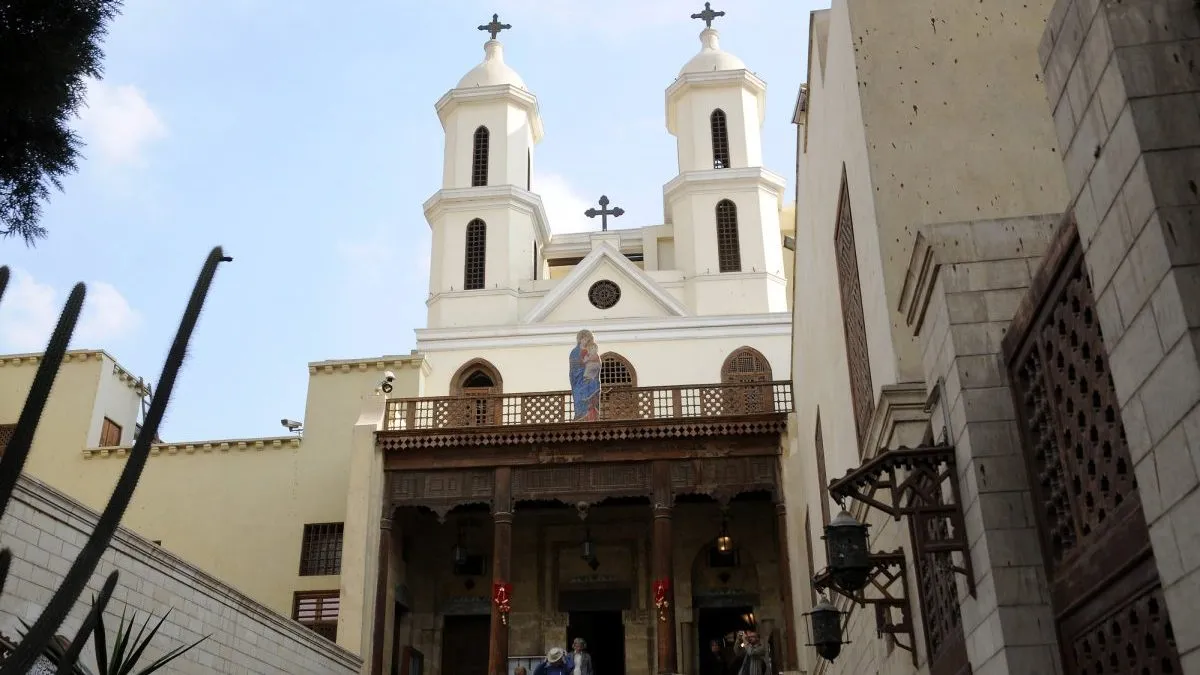
Egyptian Easter Traditions in the Modern Era
Social Media and Easter Greetings
Egyptians use Social Media like Facebook, Instagram, and Twitter to send Easter spring greetings and connect with loved ones.
Easter Eggs Hunts
Children participate in eggs hunts, searching for hidden eggs filled with chocolates and sweets.
Easter Decorations
Streets, shops, and homes are adorned with colorful banners, wreaths, and ornaments, creating a festive atmosphere.
Easter Crafts and DIY
Egyptians Easter traditions is engage in Easter-themed arts and crafts, creating decorations and sharing their projects on social media.
Easter Charity and Volunteer Work
Many Egyptians volunteer at orphanages, hospitals, and community centers during Easter to support those in need.
Easter Fashion and Outfits
Egyptians, especially the younger generation, dress up in new and fashionable attire during Easter holiday festivals, blending traditional clothing with new designs.
Easter Entertainment and Events
Concerts, parades, and cultural performances showcase traditional and contemporary Egyptian music and dance.
Easter Vacation and Travel
Many Egyptians take advantage of the school holiday period during Easter. They do that to travel and explore different parts of Egypt or go abroad.
Easter Sales and Shopping
Malls and markets offer discounts and promotions, attracting shoppers looking for new clothes, gifts, and Easter treats. And never forget to buy some eggs for celebration.
Easter-themed Media and Entertainment
Television shows, movies, and advertisements incorporate Easter themes, with actors and celebrities participating in special programs and interviews.
These modern elements have become part of Coptic Egyptian Easter traditions. Which reflects the influence of technology, globalization, and evolving cultural practices. They add new dimensions to the celebrations while preserving the cultural and religious significance of Easter in Egypt.
Try this Journey Through Ancient Egypt: 6-Day Easter Holiday Tour with Respect Egypt Tours.
In Conclusion
Egyptian Easter traditions have evolved over time, blending ancient customs with contemporary practices to create special and vibrant festivals. From the traditional rituals and ceremonies to the new elements influenced by technology and globalization. Easter in Egypt is a time of deep religious devotion, family togetherness, and cultural expression. Egyptians continue to cherish their heritage while embracing new trends, ensuring that the spirit of Easter “Sham El Nessim” endures for generations to come. Whether it’s attending church service, sharing food with loved ones, participating in outdoor activities, or engaging in acts of charity, Egyptian Easter traditions reflect the country’s rich history, values, and sense of community. As the world evolves, these habits serve as a reminder of the importance of faith and the celebration of life. So rise now and book your Tour to Egypt to celebrate Coptic Easter with us. Try every Egyptian Easter Tradition in Egypt spring.
Do you want to know how do you say Happy Easter in Egyptian? Repeat after me every word in Arabic “Eid Qiyama Magid” and “Kul sana we enta tayeb.” May you be well every year!


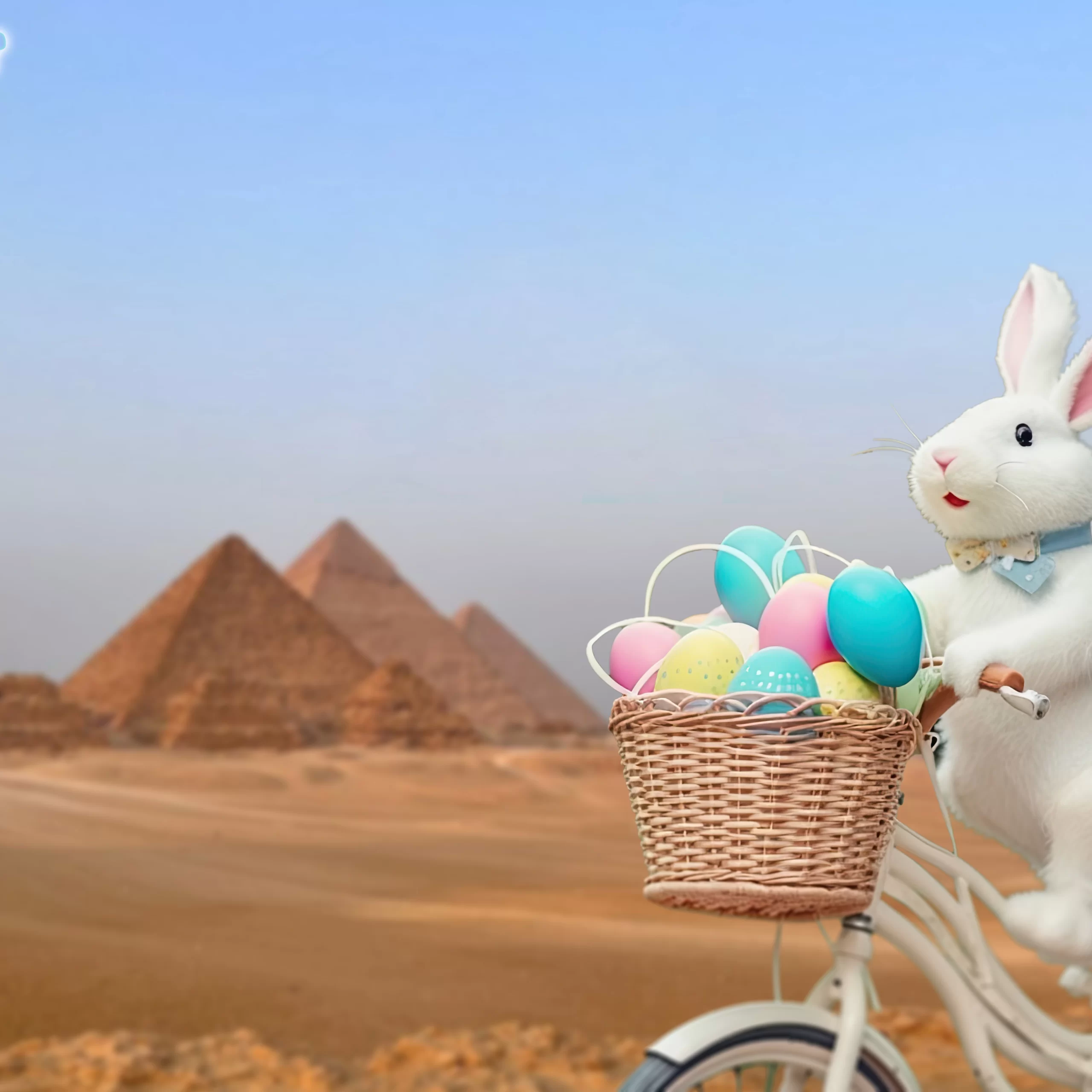
0 Comment